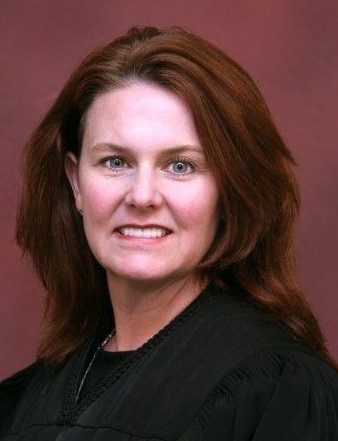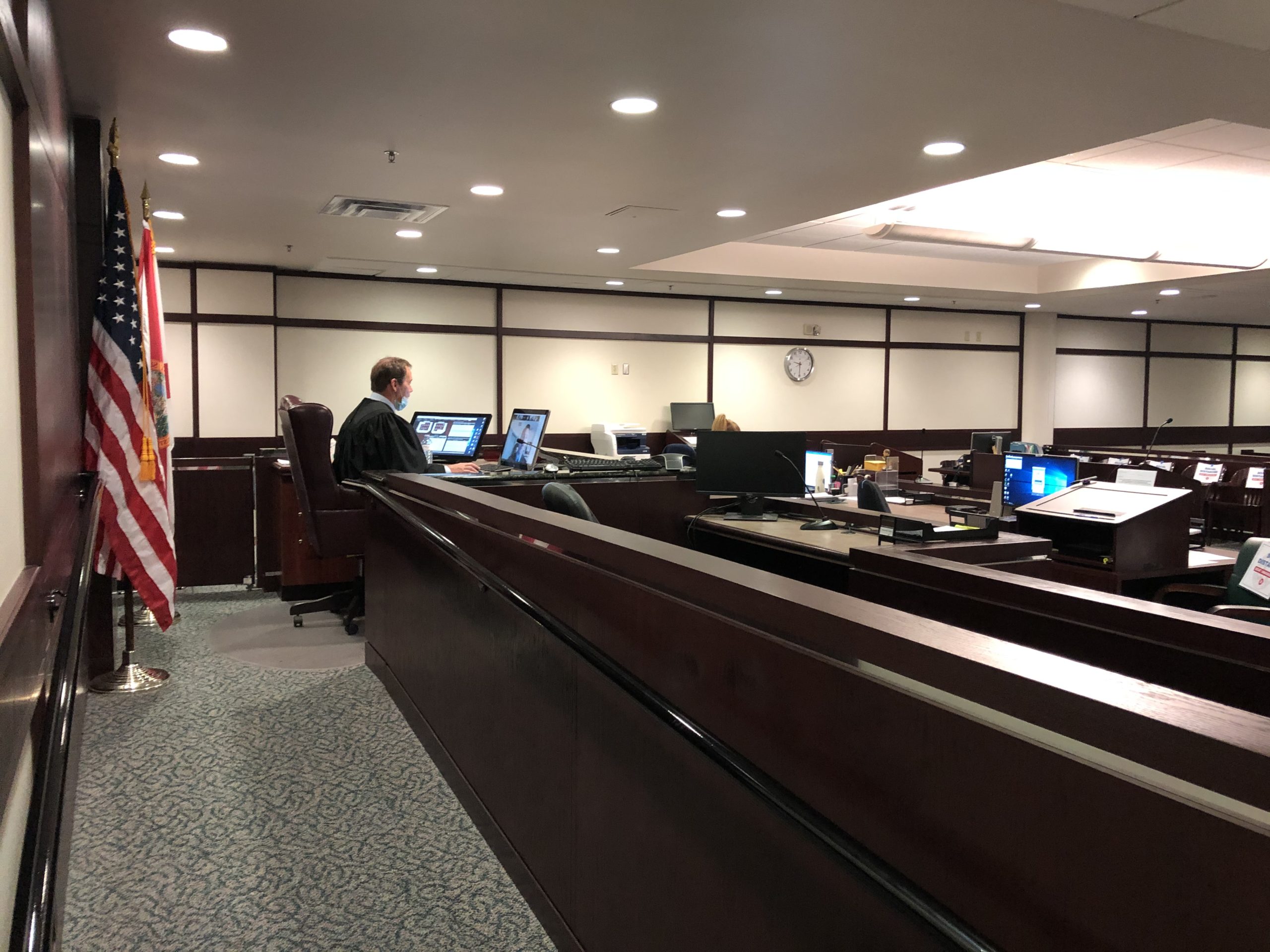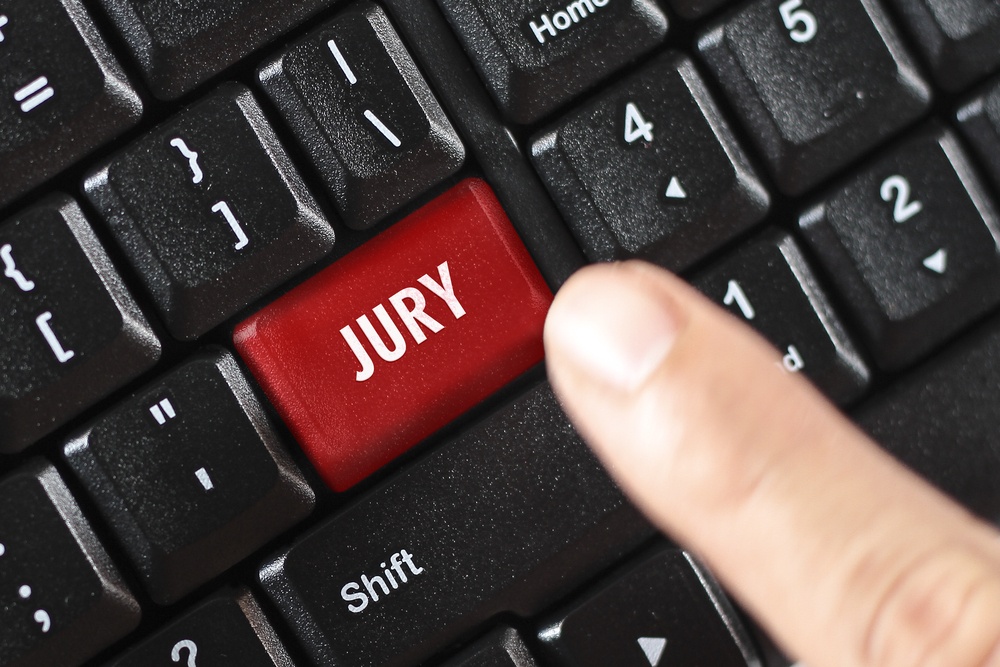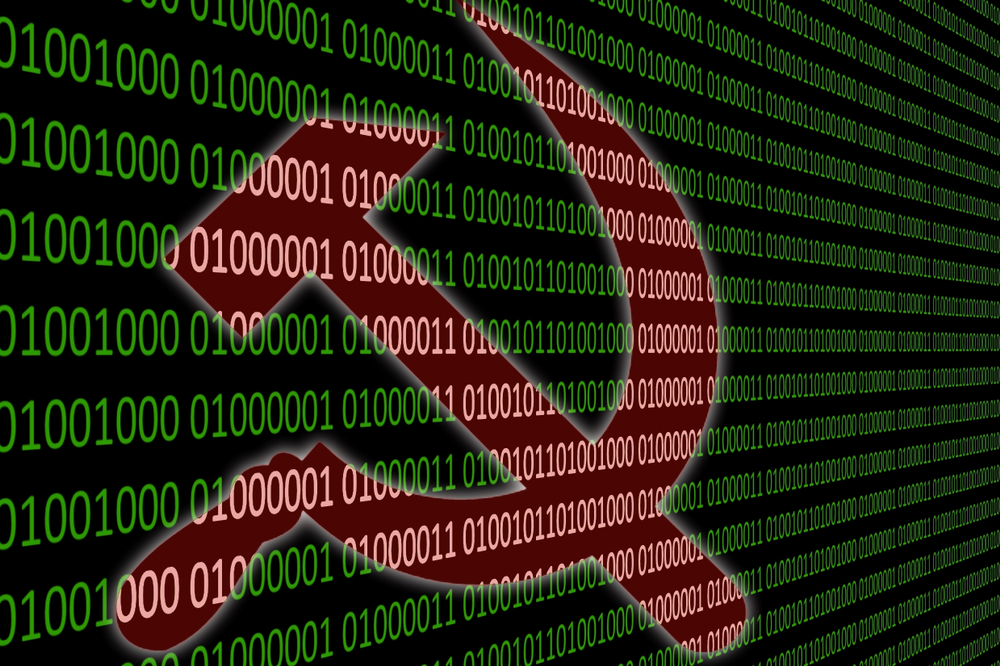A crowded courthouse is not the best place to be in the middle of a pandemic.
So, for the last few months, jury trials have ground to a halt around the country while other court hearings have been conducted remotely.
The question court officials are facing now is whether and how they can conduct jury trials via online video connections.
The challenge is providing justice while protecting public health.
American courtrooms are, by design, places where people are seated close enough to pick up on all kinds of body language cues.
Lawyers observe jurors looking for signs their presentations are being well or poorly received. Jurors look at witnesses for evidence to determine whether they’re telling the truth.
But the close quarters of a courtroom are not conducive to social distancing. For example, jurors are seated elbow-to-elbow in jury boxes to observe the proceedings.
Still, as states begin to reopen, some courts are looking at ways to resume jury trials. While some courts are considering ways to allow for social distancing and masks, others are starting to explore conducting remote jury trials.
RELATED: Coronavirus liability a concern as small businesses reopen
RELATED: Trying the George Floyd case is no simple matter
The idea of remote trials is unpopular among some attorneys. But a national court expert says they may have to get over their objections because remote trials may be their best option, especially for civil cases.

“The option is not remote or in-person how we’ve always done it,” said Paula Hannaford-Agor, director of the Center for Jury Studies at the National Center for State Courts. “The option is remote or a very different trial than you’ve ever had before.”
Some courts have pilot projects
For now, court officials are hesitating, watching while a few states experiment.
Florida appears poised to conduct the first U.S. remote jury trial in which the outcome is binding on the participants.
The state Supreme Court has authorized a pilot project involving five trial-court circuits, including the Ninth Judicial Circuit, which includes Orange and Osceola counties.
Ninth Circuit Judge Lisa Munyon chairs the Supreme Court’s COVID-19 Working Group. She’s one of the judges who expects to preside over at least one short civil trial that includes jurors watching testimony from remote locations.

“I think we will have to overcome some hurdles,” she said. That includes finding ways to ensure jurors aren’t affected by outside influences and don’t do independent research.
Munyon said unrest following the death of George Floyd in police custody in Minneapolis has further complicated matters. One day, she said, the courthouse where she works shut down early because of protests, so she was concerned about having to reschedule hearings.
On another occasion, workers on a major highway project accidentally cut the courthouse internet connection. Remote proceedings were delayed for a couple of hours.
Munyon said she recently conducted a remote hearing from home, and no one could tell.
“It was seamless,” she said.
Participation in the pilot program is voluntary, and the trials are expected to be limited to a day or two of testimony. Juries will be selected in person in the courthouse’s large jury assembly room, not in a cramped courtroom. Selected jurors will view testimony remotely from home.
If jurors don’t have a high-speed internet connection or the necessary electronic equipment, they will be allowed to view the testimony from a dedicated space in the courthouse via a court computer.
Closing arguments and deliberations will be in person in the courthouse. For summations, jurors are expected to sit socially distanced in the courtroom spectator gallery. Then they will be given the entire courtroom in which to deliberate, as opposed to a small jury deliberation room.
Texas has conducted a one-day, remote jury proceeding, known as a summary jury trial, with a non-binding decision. And Michigan has conducted a mock, remote jury trial.
Hannaford-Agor said some jurisdictions, including Kansas City, Missouri, and Mohave County, Ariz., have been conducting remote grand juries. New Jersey is considering a statewide, remote, grand jury pilot program, she said.
In the meantime, she said, a lot of courts are trying to figure out how to conduct in-person trials.
Working through challenges
Among the prominent concerns about remote trials is the constitutional right of criminal defendants to confront witnesses against them.
The National Center for State Courts issued guidance to courts on remote technologies. It called trials and grand jury proceedings “uniquely crowded affairs involving dozens, and sometimes hundreds, of individuals for a single case.”
The guide suggests technology can be used to reduce the number of people required to be present in courtrooms at different stages of trials.
Some lawyers say it’s a “bad idea”
Remote jury trials are not universally popular within the legal community.

“While it was an interesting idea to explore early in the quarantine, it became more apparent as time passed that a remote jury trial was and is simply a bad idea,” wrote two lawyers, Paula Hinton and Tom Melsheimer, in Law 360 a site focused on legal news and analysis. “While some legal experts have floated the idea as a near certainty, and indeed some jurisdictions are engaging in remote civil jury trial pilot programs (Florida and Texas), any scenario where major players are missing from a trial — especially the jurors — is simply not feasible in our view. “
“The pushback from the bar against doing remote jury trials has been really, really strong,” Hannaford-Agor said. “If courts do anything with remote jury trials, they will say, ‘you can do a remote jury trial or wait until there’s a vaccine that will enable you to do your trial’ “ in person.
Alternatives may be worse
She said the only way to conduct an in-person trial may be to hold them outside courthouses, which raises security considerations.
Indeed, during the 1918 pandemic, some judges conducted court sessions outdoors to avoid crowded indoor courtrooms, according to the Influenza Encyclopedia at the University of Michigan Center for the History of Medicine..
With social distancing, the ability to observe facial expressions will necessarily be limited by masks. And some jurors will need to sit 60 feet away from the parties, Hannaford-Agor said.
The American Board of Trial Advocates published a guide to conducting jury trials during a pandemic.
The guide discusses the problems of remote and in-person trials.
One issue for both kinds of trials is a reduction of the diversity of people available to serve on juries. Jurors available to serve during in-person trials will be limited because of reduced availability of public transportation as well as fears of contracting COVID-19.
On the other hand, remote trial jury participation could be limited to prospective jurors who have internet access and the appropriate electronic devices.
While the guide suggests issues with public access to remote trials, Hannaford-Agar maintained the opposite may be true. Courts conducting remote non-jury hearings have had no problems providing public access via online channels, such as YouTube, she said. So, it’s easier to view a public online hearing than having to go to court.
Even if courts start conducting in-person trials, Hannaford-Agor suggested there won’t be any standard civil jury trials for at least a year or two because criminal trials will be a priority. This may also make remote trials a more attractive option than waiting.
She said she doesn’t know if remote trials will become a long-term reality in the nations’ courts.
“That remains to be seen,” she said. “I’m not seeing a lot of enthusiasm for remote jury trials except as a last possible option.”
She added, “We’re still in the really early phase. Call me again in three months. I might tell you something else.”
Contact Elaine Silvestrini at [email protected]. Follow her on Twitter at @WriterElaineS.












